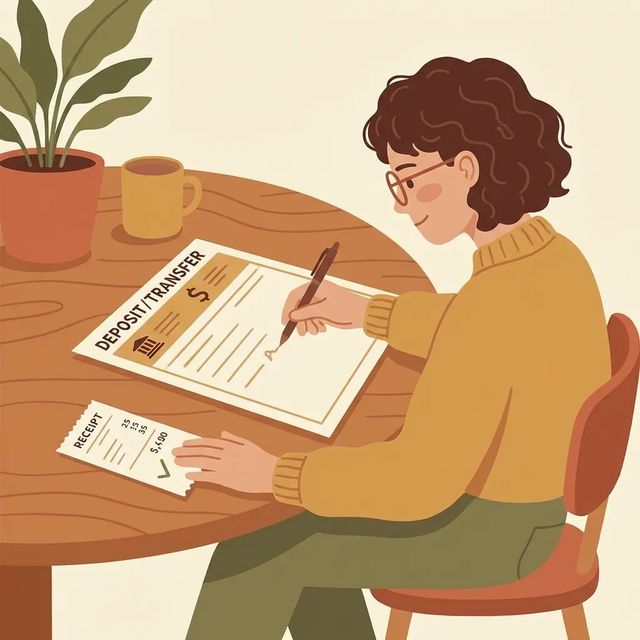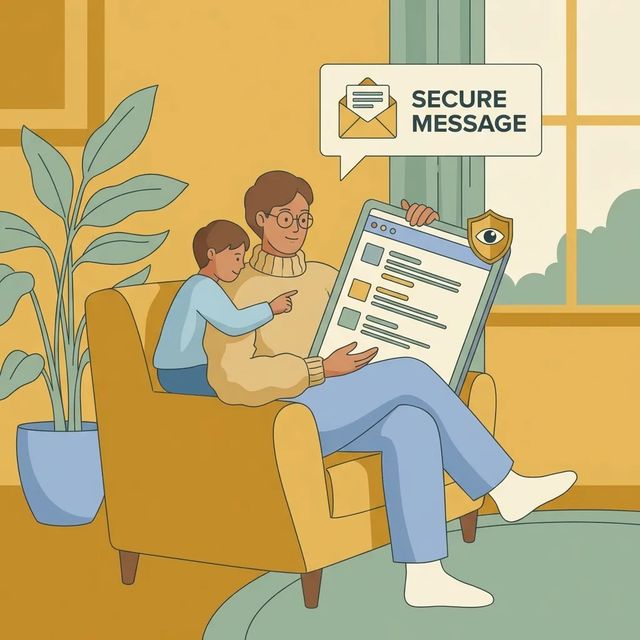FDC Miami
Explore
Find an Inmate at FDC Miami
Search for a loved one and send messages and photos in minutes.

Guides for This Facility

Before Your First Visit to FDC Miami: How to Get on the Approved Visiting List
Before you make the trip to FDC Miami, make sure you're cleared to visit. Most people get turned away simply because they aren't on the approved list yet.
Read Guide
Sending Money to Someone at FDC Miami (MoneyGram): When It Posts and the Exact Account Format
Sending money to someone at FDC Miami through MoneyGram? Two things matter most: timing it after they've arrived, and getting the account format exactly right. Here's what you need to know.
Read Guide
How TRULINCS Works at FDC Miami: Getting Approved, Messaging Rules, and Unblocking
TRULINCS handles electronic messaging at FDC Miami, but you can't just start writing—first, you need contact approval and a CorrLinks invitation. Here's how it works, what limits apply, and what to do if messaging suddenly stops.
Read GuideAt a Glance
Visitation
- You must be on the inmate's approved visiting list and cleared by the BOP before visiting FDC Miami.
- Immediate family verified by the Pre‑Sentence Report may be allowed to visit if the inmate's visiting list is not yet established, but you should call ahead to confirm.
- The BOP provides at least four hours of visiting time per month, although wardens can restrict visit length or number of visitors for capacity reasons.
Communication
- Inmates at FDC Miami can send and receive electronic messages using the BOP’s TRULINCS system.
- TRULINCS messages at FDC Miami are text‑only with no attachments and are limited to 13,000 characters.
- TRULINCS at BOP facilities is funded entirely from the Inmate Trust Fund and uses no taxpayer dollars.
Sending Money
- Do not send MoneyGram funds to FDC Miami until the inmate has physically arrived at the facility.
- MoneyGram deposits sent between 7:00 a.m. and 9:00 p.m. EST post within 2–4 hours; deposits sent after 9:00 p.m. EST post at 7:00 a.m. the following morning.
- When sending MoneyGram include the inmate's eight-digit register number immediately followed by their last name and use receive code 7932 with the Company Name as directed.
Facility Info
- FDC Miami does not provide government payment or reimbursement for visitor transportation; visitors must arrange their own travel.
- Facility staff can provide directions or local transit information to help visitors plan their trip.
- Attorneys or counsel may deliver electronic discovery materials to inmates on read‑only media compatible with the institution.
Based on official sources and community feedback. Learn how we verify
Topic Overviews
Visitation
Before traveling to FDC Miami, confirm you're on the inmate's approved visiting list and cleared by the Bureau of Prisons (BOP). The inmate typically adds visitors—don't assume you're approved until you receive formal clearance. If the visiting list hasn't been established yet (right after initial entry or a transfer), immediate family members verified by the Pre‑Sentence Report may be allowed to visit, but confirm arrangements ahead of time. Federal rules guarantee at least four hours of visiting time per month, though the warden may limit visit length or visitor numbers to manage capacity. Brief hugs or kisses at the start and end of visits are generally allowed; conjugal visits are not permitted. Dress conservatively to avoid being turned away.
Read full guideCommunication
FDC Miami offers electronic messaging through the BOP's TRULINCS system—secure text messaging between inmates and approved public contacts. Messages are text‑only with no attachments, limited to 13,000 characters, and screened before delivery. To communicate, institution staff must approve you as a contact. Once approved, CorrLinks sends an automated invitation for you to accept or block messaging. TRULINCS runs entirely on the Inmate Trust Fund, not taxpayer dollars. Telephone privileges are also available, but calls are typically paid by the inmate (sometimes the receiving party) and routinely monitored. Unmonitored attorney calls may be allowed in specific circumstances.
Read full guideSending Money
Sending money to someone at FDC Miami? MoneyGram is the documented option—but wait until the inmate has physically arrived at the facility before sending anything. Funds won't post until arrival. Timing matters: payments sent between 7:00 a.m. and 9:00 p.m. EST typically post within 2–4 hours, while payments after 9:00 p.m. EST post at 7:00 a.m. the next morning. On the MoneyGram form, enter the inmate's eight-digit register number immediately followed by their last name. Use receive code 7932 and follow the Company Name field instructions. Considering other methods like online portals, kiosks, phone, or mail? Confirm what's currently accepted and any fees before sending. Double-check the inmate ID and your contact details to avoid delays.
Read full guideFacility Info
Visiting someone at FDC Miami? Plan your own travel—the facility doesn't provide government transportation or reimburse visitor expenses, though staff can share directions or local transit information. For legal matters, attorneys may deliver electronic discovery materials on read-only media compatible with the institution. Contact the facility with questions about specific e‑discovery requests. The BOP's e‑Discovery guidance lists supported formats, including Adobe PDF versions 1.0–1.7. Many Florida facilities publish inmate handbooks explaining rules, programs, and procedures. Intake typically includes property inventory, medical screening, and setting up an inmate account for commissary and billed services. Expect routine searches and follow staff directions while on facility grounds.
Common Questions
Showing 6 of 13How do I get on FDC Miami's approved visiting list?
The inmate usually adds you to their approved visiting list, and the BOP must clear you before visits are allowed. Complete any required visitor application as instructed and wait for formal approval before making the trip.
VisitationCan immediate family visit an inmate who was just transferred to FDC Miami?
Possibly. If the inmate's visiting list isn't established yet, immediate family verified by the Pre‑Sentence Report may be permitted to visit. Call ahead to confirm what's allowed and what documentation you'll need.
VisitationWhat are acceptable clothing rules for visiting someone at FDC Miami?
Dress conservatively. Revealing or inmate-like clothing is generally prohibited and can get you turned away. Check the visitor guidance or inmate handbook for specific restrictions before you go.
VisitationHow does TRULINCS messaging work at FDC Miami?
FDC Miami uses the BOP’s TRULINCS system for secure electronic messaging between inmates and approved contacts. Messages are text‑only (no attachments) and limited to 13,000 characters, and they’re subject to screening before delivery.
CommunicationHow do I get approved to receive messages from someone at FDC Miami?
The inmate requests to add you as a contact, and institution staff must approve it. After approval, CorrLinks sends you an automated invitation to accept or block communication. If you block an inmate and later change your mind, the inmate can ask the local Trust Fund Office to remove the block—they'll need to provide your name, address, email, and phone to generate the unblock request.
CommunicationAre phone calls from inmates at FDC Miami monitored and who pays for them?
Calls are typically paid by the inmate (sometimes the receiving party). A notice by each telephone warns that calls are monitored. Attorney calls may be unmonitored in certain defined circumstances.
CommunicationReady to Connect?
Search for your loved one to start communicating today
Did You Know?
FDC Miami is a federal detention center in Florida. Inmates can send and receive electronic messages through TRULINCS.
This guide is based on feedback from dozens of families and official facility documentation. Learn how we verify
